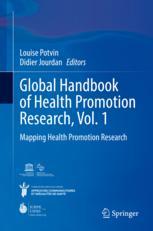Meeting with rural women of my mother's home community (Pimantyè, Bainet)
Published in Social Sciences
In Haiti, holders of local and indigenous knowledge living in rural areas are excluded from speaking out about health promotion. We invited them to break the culture of silence by asking them to participate in a dialogue workshop, held over several days, related to the role of their knowledge in promoting health in their communities. Unlike some of us may believe, these people are not “cultural idiots”, but are, for the most part, illiterate scholars who have developed knowledge through multiple dimensions in order to manage their own health and that of others (including strangers as well as members of their biological family and their community). Through their participation in the dialogue workshop, they became more aware that they are actually living human treasures and traditional health promoters, who each play an important role in both human (community resilience) and environmental sustainability. Our trusting relationship and our close cultural proximity to the participants contributed to the success of the dialogue workshop, a success that shattered the myth of the mandatory link between the rural dwellers’ situation and absolute ignorance.
The local dialogue workshop is a method used in our research to collect information related to conscious and unconscious health promotion practices in the rural communities in Haiti. We created this method to fight against ontological and epistemic coloniality (coloniality of being and knowledge, Maldonado-Torres, 2007; Mignolo, 2003; Lander, 1997; Quijano, 1997). Unlike traditional and ‘rigid’ data collection techniques, this new method is not characterized by predetermined categories but mostly by an open epistemological posture and by the prominence given to serendipity (that is, the discovery of unforeseen facts1). Indeed, the objectives and themes of the research were discussed during our first meeting with holders of local and ancestral knowledge, at the beginning of the first workshop discussion. Many questions were suggested by the participants, both consciously and unconsciously.
The dialogue workshop, as we have facilitated it, is a technique of knowledge sharing in which the anti-epistemological dichotomy of knowing / ignorance is brought under control. Thanks to the reversal of the usual roles (the workshop leader, being a holder of scholarly knowledge, behaved like a curious student and the participants, who were about to participate at a training seminar, were encouraged to behave like teachers), the majority of participants in the dialogue workshop realized that they represented multiple dimension knowledge guardians.
This method has enabled us to develop an anthropology of social and epistemic justice, a decolonial anthropology. Thanks to this method, we have discovered the role of racialized peoples' knowledge in nature conservation and human sustainability.
A collaborative alliance between knowledge from the South and knowledge from the North is essential for the preservation of epistemic, ontological, social, and human diversity. The confrontation of gathered knowledge with knowledge from the North has given rise to a new theoretical, epistemological, ethical, and methodological approach: regenerative and restorative pedagogy.
This emerging paradigm arose from horizontal encounters between knowledge holders in the South, as well as between them and us, who possess knowledge from both the North and the South. It is the result of objective analysis of observations made in the global South (particularly in rural areas) and in the global North.
References
Damus, O., Vézina, M., Gray, N.J. (2022). Valuing Indigenous Health Promotion Knowledge
and Practices: The Local Dialogue Workshop as a Method to Engage and Empower
Matrons and Other Traditional Healers in Haiti. In: Potvin, L., Jourdan, D. (eds) Glo-
bal Handbook of Health Promotion Research, Vol. 1. Springer, Cham.
DOI : https://doi.org/10.1007/978-3-030-97212-7_12
Damus, O. (2021). Anthropologie de l’accouchement à domicile. Les mères, les matrones et
les sages-hommes traditionnels d’Haïti prennent la parole. Pointe-à-Pitre : Presses univer-
sitaires des Antilles. Collection « Espace, territoires et sociétés ».
Damus, O. (2017). « Las prácticas profesionales de las comadronas tradicionales en Haití:
entre salud, biodiversidad y espiritualidad » in B. Baptiste, D. Pacheco, M. C. da Cunha
et S. Diaz (eds), Knowing our Lands and Resources. Indigenous and Local Knowledge of
Biodiversity and Ecosystem Services in the Americas. Paris: UNESCO, pp. 20-31.
https://information.tv5monde.com/international/haiti-comment-laccouchement-t-il-evolue-290864.
